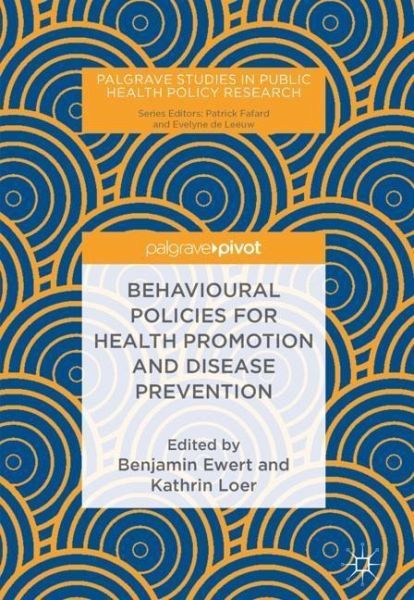
Behavioural Policies for Health Promotion and Disease Prevention

PAYBACK Punkte
25 °P sammeln!
Policy-making in public health is highly complex, which is one reason why the behavioural turn is now playing a significant role in this field. Against this backdrop, this book aims to develop a theoretical understanding of how policymakers take up public health challenges and how policies change over the course of time. Accordingly, the book reveals policy-makers' underlying assumptions, which influence the way in which public policy seeks to promote the health status of citizens. In a second step, the book presents a typology of policy instruments and applies this to the field of health prom...
Policy-making in public health is highly complex, which is one reason why the behavioural turn is now playing a significant role in this field. Against this backdrop, this book aims to develop a theoretical understanding of how policymakers take up public health challenges and how policies change over the course of time. Accordingly, the book reveals policy-makers' underlying assumptions, which influence the way in which public policy seeks to promote the health status of citizens. In a second step, the book presents a typology of policy instruments and applies this to the field of health promotion. This typology introduces an option that adds behaviourally informed insights to the toolbox of political analysis. Empirical evidence of behavioural health policies can be found in various countries around the world, and the book presents both relevant country studies and examples from the supra- and international level. Finally, the book discusses the implications of the rise of behavioural health policies, proposes a specific concept of health citizenship and reviews state-citizen relations. The book is useful for academics from health-related disciplines, such as political science, sociology, and public health, as well as for policy-makers, practitioners and students.












